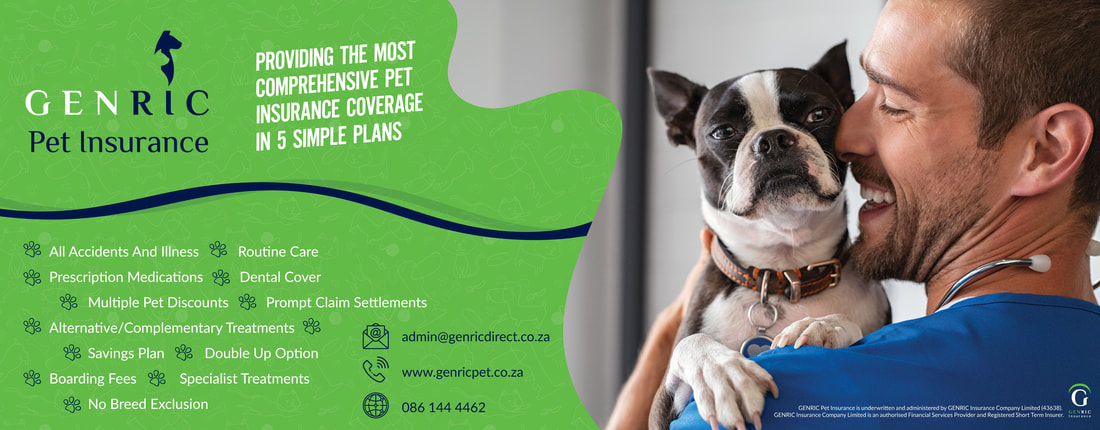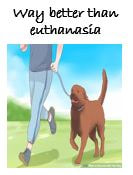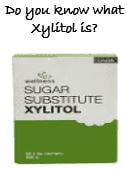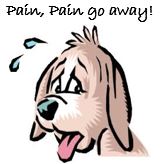Is Your Pet Pudgy - A Weighty Subject - Part 1
Health Risks Associated With Dog Obesity - Part 2
Dr Jeannie Thomason - www.dogquality.com
(They have a great Blog - woth reading through - enjoy!)
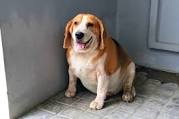
Is Your Dog Pudgy - Part 1
Obesity is one of the common diseases of Older (Senior, Geriatric) dogs. Fortunately, it is not only preventable but with commitment on the part of the dog owner, it is reversible as well. It’s often difficult for pet owners to recognize that their dogs are in fact overweight and not just well fed and happy. One reason we don't often notice obesity in our pets is because of our perception of obesity in ourselves as humans.
By human standards, an obese person is someone significantly over-weight, not just someone who has gone up one size in their pants. However, with our dogs, the term obese is used for pets with any excessive accumulation of fat in the stomach and the waist. An animal that is 15-20% overweight is considered obese. As in humans, an obese animal is not healthy and is highly vulnerable to many types of health problems The metabolism of an overweight pet can no longer support a healthy heart, joints (over 40% of older dogs have joint problems), liver, lungs or normal blood sugar.
Obese dogs have less heat intolerance and are often poor candidates for surgery should it be needed. Why Our Dogs Gain Weight Puppies burn more calories than adults because they are using every last drop of nutrients to build their bodies. Spayed and neutered animals use less enegry/burn less calories as intact animals do since the heart does not have to pump blood to the reproductive organs anymore.
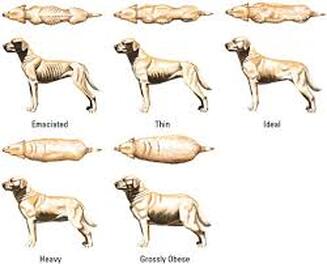
Mature animals, neutered animals do not require as much food/calories so cutting back a bit on the daily meals alone can be of help in keeping off the extra weight. As our animals grow older, we must make a concerted effort to make sure they are still getting ample exercise. So much the case today, many families have both adults working most of the day so our dogs are left home alone to lounge around and nap. In the wild, dogs have to work and exert energy to catch their food, thus keeping in balance the consumption and the burning of calories. However, our dogs don't have to do much to get food. Therefore, they run the risk of consuming more calories than they're burning, which just like in humans, leads to gradual weight gain.
Furthermore, dogs are genetically made to save fat for energy. When wolves' feeding behavior has been studied, it has been found that that wolves don't always eat daily in fact rarely do they eat daily. They don't need to eat daily because their physiology is such that extra nutrients are converted to fat to be used later. Our dogs are descendants of wolves and/or other wild canids. What is happening with our pet dogs is that in short, we are feeding our pets too much food and they are getting very little to no real exercise to balance things out. Their bodies just keep storing more and more fat until obesity becomes a reality.
Feeding The Wrong Foods The multi-billion dollar pet food industry has done harm to our dog’s health and made billions of dollars off uneducated pet owners who only want the very best for their dogs. *This is another article in its self so I’ll keep it brief and say here and now that processed, commercial pet food is killing our pets. It is not just the poor quality, cheap foods either because it really does not matter what quality ingredients you begin with, it all ends up the same way – dead, no nutritive value. Then, since there truly is no nutrition left in the end product, synthetic vitamins are sprayed on the to diets just prior to sealing the bags. These synthetic vitamins are not molecularly/nutritionally equal to the natural source vitamins found in raw food sources nor are they readily absorbed by the dog’s body.* Please read my article: Kibble is kibble is still kibble for more information.
When our dogs are fed processed/over-cooked foods that their digestive systems were never designed to eat/digest in the first place is that the body is forced to raid its own dwindling supply of nutrient reserves and enzymes which in turn, causes the body to remain hungry for true, quality nutrients. This of course, leads to hunger pangs for the dog even though the stomach is full. The result is chronic hunger and begging for more food. This leads to chronic overeating and of course the excessive weight and the rampant obesity seen in our dogs today.
Furthermore, dogs are genetically made to save fat for energy. When wolves' feeding behavior has been studied, it has been found that that wolves don't always eat daily in fact rarely do they eat daily. They don't need to eat daily because their physiology is such that extra nutrients are converted to fat to be used later. Our dogs are descendants of wolves and/or other wild canids. What is happening with our pet dogs is that in short, we are feeding our pets too much food and they are getting very little to no real exercise to balance things out. Their bodies just keep storing more and more fat until obesity becomes a reality.
Feeding The Wrong Foods The multi-billion dollar pet food industry has done harm to our dog’s health and made billions of dollars off uneducated pet owners who only want the very best for their dogs. *This is another article in its self so I’ll keep it brief and say here and now that processed, commercial pet food is killing our pets. It is not just the poor quality, cheap foods either because it really does not matter what quality ingredients you begin with, it all ends up the same way – dead, no nutritive value. Then, since there truly is no nutrition left in the end product, synthetic vitamins are sprayed on the to diets just prior to sealing the bags. These synthetic vitamins are not molecularly/nutritionally equal to the natural source vitamins found in raw food sources nor are they readily absorbed by the dog’s body.* Please read my article: Kibble is kibble is still kibble for more information.
When our dogs are fed processed/over-cooked foods that their digestive systems were never designed to eat/digest in the first place is that the body is forced to raid its own dwindling supply of nutrient reserves and enzymes which in turn, causes the body to remain hungry for true, quality nutrients. This of course, leads to hunger pangs for the dog even though the stomach is full. The result is chronic hunger and begging for more food. This leads to chronic overeating and of course the excessive weight and the rampant obesity seen in our dogs today.
|
Vet expenses can be very high, especially if any type of operation or specialist care is involved. Ensure that your pet is covered in the event of any unexpected, and unforeseen accidents, any operations, and to look after your Golden Oldie, when those days arrive. We have 5 simple plans for comprehensive pet insurance coverage. Visit our website at www.genericpet.co.za
|
Health Risks Associated With Dog Obesity
The health risks to overweight dogs are serious and every dog owner should be aware of them.
Damage to joints, bones, and ligamentsOlder Studies suggested that 25% of overweight dogs develop serious joint complications. If the joints and bones are required to carry excess weight, they usually start to become damaged. Arthritis can develop and the joint changes and pain associated with hip dysplasia can become markedly more severe as well. Extra tension on joints caused by an increased weight load can also lead to the damage of certain ligaments. One of the ligaments in the knee, known as the anterior cruciate ligament, is very prone to strains and tears. If this ligament is torn, the knee becomes very unstable and the dog will be reluctant to use it. Usually Surgery is required to repair this torn ligament.
Dogs carrying extra pounds of weight place extra demands on virtually all the organs of their bodies. When the body organs are overloaded, disease and sometimes death are the consequences.
Diabetes mellitus (sugar diabetes)
One of the most common complications of obesity in dogs is the development of diabetes mellitus (sugar diabetes). Being over weight causes an increase in the secretion of insulin in response to the increased blood glucose level in the overweight dog. Insulin is also more in demand simply because there is a greater amount of body tissue in an overweight dog. When requirements for insulin exceed the ability of the body to produce insulin, diabetes mellitus develops. If the need for insulin increases over a long period of time, the cells in the pancreas which produce insulin can actually 'burn out,' again resulting in diabetes.
Heart disease and increased blood pressureSomething new to dogs in the last 30 some odd years is hypertension. Just as in humans, excess weight tends to cause increased blood pressure (hypertension). The heart obviously has an increased work-load since it must pump additional blood to excess tissues. This can lead to congestive heart failure.
Difficulty breathing
In overweight animals, the lungs are not able to function properly. The additional fat in the chest restricts the expansion of the lungs. The extra fat in the abdomen pushes against the diaphragm, which separates the abdominal cavity from the chest. This also results in less space in the chest for the lungs to expand on inspiration. To make matters worse, the increased quantity of tissue puts an increased demand on the lungs to supply oxygen.
Decreased staminaDogs who are overweight have less endurance and stamina. Carrying all that extra weight around takes a lot more work. The heart, muscles, and respiratory system are all asked to do more than they were designed for.
Decreased liver functionThe liver stores fat so when a dog is overweight, an increased amount of fat of course, builds up in the liver. This is called hepatic lipidosis. This condition can result in decreased liver function.
Increased surgical and anesthetic risk
We talked about effects of excess weight on the heart and lungs above however, the effects on the heart and lungs have serious ramifications if the dog has to have anesthesia. Cardiac arrest (heart stops) and poor circulation of oxygenated blood to the tissues can occur. Most anesthetics are taken up by fat, so an overweight animal will take longer to come out of anesthesia because the anesthetic must be removed from the fat by the body. In addition and important to know is that most anesthetics are broken down by the liver. A fatty liver will not be as efficient at breaking down anesthetics and other drugs, so again, recovery may be delayed or even death may occur.
The increased fat in the tissues makes surgery its self more difficult. It is harder to find or get at what you are looking for in the body for all the fat. For example, abdominal surgery in an obese dog, there may be literally inches of fat between where the skin incision is made and the organ you need to work on is situated, such as the urinary bladder. So not only is the surgery now more technically difficult but the procedure will take longer then usual, which again increases the anesthetic risk.
Digestive disorders
An overweight dog has an increased risk of developing constipation and may also have more problems with intestinal gas.
Decreased immune function
Obesity in dogs is directly associated with decreased resistance to viral and bacterial infections. Canine distemper and Salmonella infections, especially appear to be more severe in dogs who are overweight.
Skin and hair coat problems
The risk of skin and hair coat diseases are increased in dogs who are overweight. The skin forms more and different types of oils, the skin may fold in on itself creating pockets, which are ideal for the accumulation of oils and the development of infections.
Increased risk of cancer
Studies suggest that obese dogs tend to have an increased risk of developing certain types of cancers, including a particular type of cancer of the urinary bladder. A recent study also found that dogs who were obese at one year of age were at greater risk of developing mammary tumors.
Decreased quality and length of life
It should be evident from the above discussion that the over-all health, ability to play, even to breathe, are diminished in overweight dogs. Overweight dogs often become more irritable due to being hot, in pain, or simply uncomfortable. Overweight dogs die at a younger age than those maintained at an optimum weight.
I hope I helped to make it clear that we are not contributing positively to our dog's health when we allow them to become overweight.
Help Is on the Way
If your dog is already a bit pudgy, don’t despair, while helping your dog to lose a little weight is not as simple or convenient as feeding a kibble prescribed for over-weight dogs, it is not a hopeless endeavor either. If you should decide to commit yourself to helping your dog lose weight then it is best to adopt a holistic approach to the weight loss. You will need to monitor everything from the amount of exercise, the type of food and treats fed to the amount of food and treats, he or she actually partakes in on a daily basis. Be upbeat and positive about the weight loss around your dog. If you are depressed and feel sorry for your dog because you have cut back on the amount of food you are feeding or because the dog appears to prefer napping to walking, your dog will will pick up on those feelings and emotions and react accordingly.
Exercise is a must! There is no way around this. The more muscle mass an animal has, the more calories the animal burns while inactive. Start with short periods of exercise and depending on the age and health of your dog, decide whether to start with short walks or a game of catch. What ever you start out with, be consistent and do it daily. If you have access to a swimming pool your dog can use, this is one of the best ways to exercise your dog, especially if he/she is already effected by joint problems. Increase the time and/or distance every couple of days and do as much exercise as possible out of doors in the sunshine and fresh air.
Take everything into consideration in order to make weight loss successful for your cherished pet. We're not looking for fast weight loss, because, as with humans, fast weight loss does not always mean the weight will stay off. Fast weight loss and weight gain traumatizes the body. Animals should loose no more than 1-2% of their body weight per week. For instance, if your dog weighs 50 pounds, 1% is 1/2 pound weekly and 2% means 1 pound weekly.
If your dog is not already presenting with ailments or diseases relating to his extra pounds, consider beginning a preventative lifestyle for him/her. Feed a raw, species appropriate diet. At the very least, throw away the kibble and canned food and lightly cook for your dog. Supplement with digestive enzymes, probiotics and natural sources Omega 3 fatty acids.
Make sure you are giving fresh, filtered water to your dog. If you don’t drink your tap water then don’t give it to your dog.
Let’s not “kill” our dogs with what we may consider kindness by giving them that extra little treat when they look at you with those big brown eyes or letting them skip the walk today because they look so content and happy napping on the couch. Love them by gifting them good health and long life with a proper diet, exercise and companionship.
|
"Lack of mobility is a common cause of euthanasia in senior pets, but it’s one that can often be avoided by encouraging daily physical exercise"
|
Xyiltol is a killer - make sure you know what products contain it.
|
So many dogs suffer from joint pain, arthritis etc, and the earlier detected the better. This great article gives you pointers to look at and tips on dealing with the pain.
|

